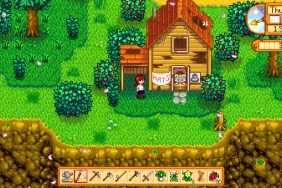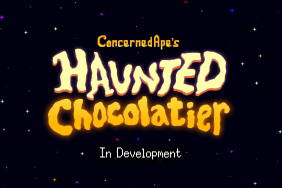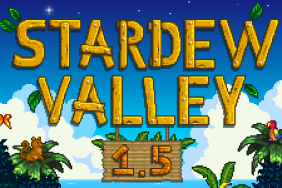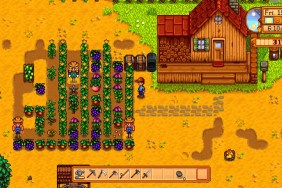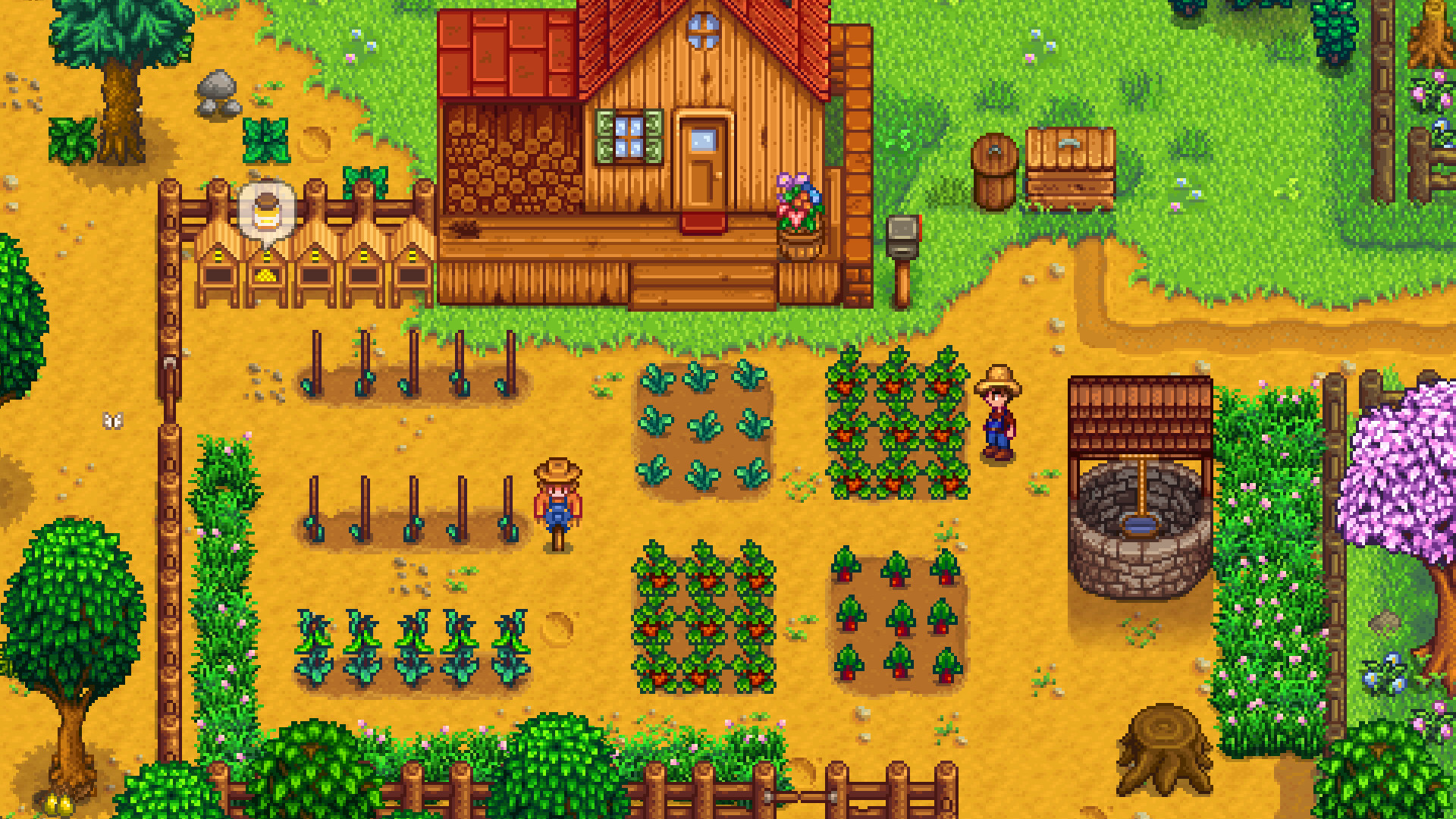
Before I started writing this, I think I made over thirty excuses as to why I couldn’t start when I had initially sat down to do so. Trivial things that normally wouldn’t matter suddenly became life or death. I literally stood up at one point to figure out where a new book would be going on my shelf. Then the inevitable “Ah, I can do it tomorrow” burrowed its way into my brain, leaving the blank page adrift once more without those starting sentences, bereft of a creative anchor. This is creative anxiety. Because of the way we rationalize our anxiety, most individuals are unaware that it’s something they’re even experiencing. Of course it’s more important to do laundry than paint. Of course you need to run out to grab food before writing. Of course it’s impossible to design a masterpiece in an untidy room. It makes one wonder how many creative milestones continue to go untapped.
This did not seem to be an issue for Eric Barone, the sole creator and designer of Stardew Valley. I believe his work method and determination should be an inspiration to those to drowning in their own lack of self assurance. Four and a half years of Eric Barone’s life were dedicated to creating Stardew Valley alone, a feat that could not have happened any other way. “I think it makes sense that I worked entirely alone. I wanted to do all the music, the art,” he said in an interview with GQ.
This is an incredible understatement from Barone, given an initial reluctance to pursue his passion at first. Developing a video game can eat hundreds of thousands of work hours, and it will usually have a development team to distribute those hours accordingly. Obviously, total work hours are dependent on a game’s ambitions and creative drive, the breadth of which in Stardew Valley exceeds standard indie development. Despite a grueling 12-hour work schedule every day of the week, knowing full well that there was no guarantee of success for his time and efforts, Barone set aside doubt as a restriction of capability and embraced it. To him, this was something that had to be done. This assurance, against an ocean of doubt, propelled him skyward.
It should be noted that Barone was also uninitiated in the realm of programming. His prior experience in development was making a point and click adventure game titled 17CF Quest, something made to accompany the online release of an album from the band he had once been a part of. Although Barone finds the game somewhat embarrassing, it’s interesting to see the passion for development so keenly embedded in his bones at such an early stage, even if he wasn’t aware of it at the time. In order to go from 17CF Quest to something that matched his vision, Barone would have to not only develop the game alone, but also teach himself how to do it.

“I didn’t really have any sort of deliberate plan or anything. I just had my intuition as to what was the next important thing I should work on,” Barone explained.
He spent “thousands of hours” on pixel art in order to improve his capabilities. That’s just honing the aesthetic, a separate entity from making them come alive, entirely. Whenever a programming issue stunted his progress, or a code simply wasn’t working, he would refuse to ask other developers or related community boards for help, opting to sift through threads on forums until finally discovering a solution that suited his needs. This is the crux of Barone’s success: an unyielding rigidity in psychological resolve. Every conceivable obstacle associated with creation had put itself within Barone’s path. Sometimes he was able to veer around it, and other times he was forced to chisel a way through the center. There were irrefutable moments of his own capabilities holding him back, but Barone hadn’t let anything else deter him up to those points. No way was he about to let himself become the kill switch.
“It was definitely a struggle to keep my sanity,” he told GQ, another brilliant understatement against obstructions that have thwarted many others in their creative endeavors. “I just persevered and forced myself to learn. You realize the thing that you thought was good actually isn’t. You realize why and you improve on it. And that’s just an endless cycle.”
There are a lot of people on this planet, plenty of which might have stumbled across something masterful in a creative sense, only to have it discarded because they thought it was terrible. Stardew Valley almost suffered from this. Barone himself acknowledged that when exposing yourself to the same thing in repetition for such a daunting amount of time, one’s opinion of that thing can diminish to a near hateful disposition. So lost was he in the creative storm of the game that he lost objective sight of whether it was good or not. “In fact,” he said, “I thought it was bad.” And indeed, the quality of the game might have reflected those feelings at the time, yet there awaits Stardew Valley for any and all that wish to play it, today, a testament to the power of perseverance.

It’s supremely easy to scrap a project you’re unsatisfied with, rather than honing the completed project, or perhaps realizing that the finished project was merely the stepping stone to something greater. It’s a terrifying habit to succumb to because it ignores the real problem, which is our inherent need for safety, be it physical or psychological. By throwing in the towel, we recede to a state of creative neutrality, where we don’t have to subject ourselves to the knowledge of having failed or succeeded. Thousands perform this act on a near daily basis—a mass genocide of creative impulse that obliterates potential. It’s important that we realize this exit strategy for what it is, the way Eric Barone did, and ignore that impulse to give up on not just the idea, but ourselves.
I had to prove that I wasn’t just crazy, that this wasn’t just a pipe dream, and that I was actually gonna follow through on it. That was really getting to me, psychologically, thinking about whether I was wasting my life, wasting my time. So part of my strategy was to convince the people around me that they should believe in me. But that was difficult. I was definitely embarrassed.
Imagine pouring your heart and soul into something, and then not being able to tell the people closest to you about it. I think Barone’s declaration of embarrassment should serve as a cautionary tale, one that highlights the importance of emotional support. Barone didn’t need anyone to tell him that the game was good or bad, he just needed the encouragement to see the game to the end. If what’s being done is of significance to you, it shouldn’t come down to someone else’s opinion whether you finish or not. J.K. Rowling’s first Harry Potter novel was rejected over thirty times before someone finally gave it a chance. The point there being that plenty will have no particular fondness for your craft. It’s an inevitability. For everything that is loved, there will also be hate. Despite the apparent quality of the things we produce, it’s important to advertise that a project of passion might not be the best in its current form, but is certainly something that should see itself finished. How else can we learn and improve?
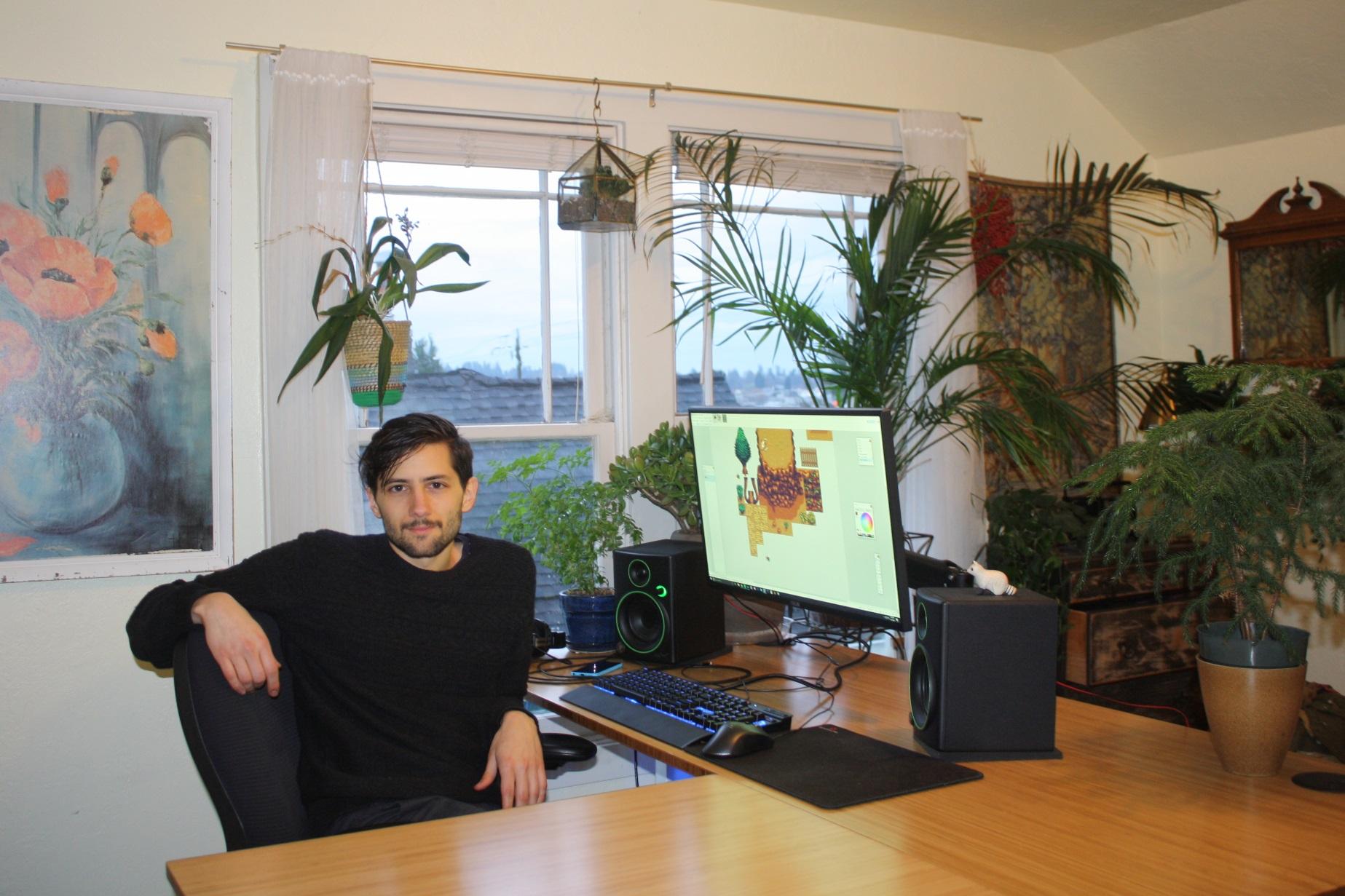
I’m enamored by Barone’s creative journey. He faced both his own doubtfulness and the unassured reception of his peers, as well as the limitations that come with self capability, and trumped them. He managed to till acres of negatives and sprout them into positives (Did you actually think there wasn’t gonna be at least one farming metaphor in this? Come on). And I’m by no means pointing to his success to say, “Look, everyone. Money means it was all worth it.” It’s his work method and dedication, necessitated by the vision of such an enormous project that leaves me in awe. Never mind the fact that I poured over 100 hours into his game and hum the soundtrack to myself on occasion.
He’s currently developing his new game, which, like all things, has the potential to be not so great. While I don’t think that’ll be the outcome, I will still praise his application of creative bravado in the face of failure, because even in failure we surpass that which is untried.





